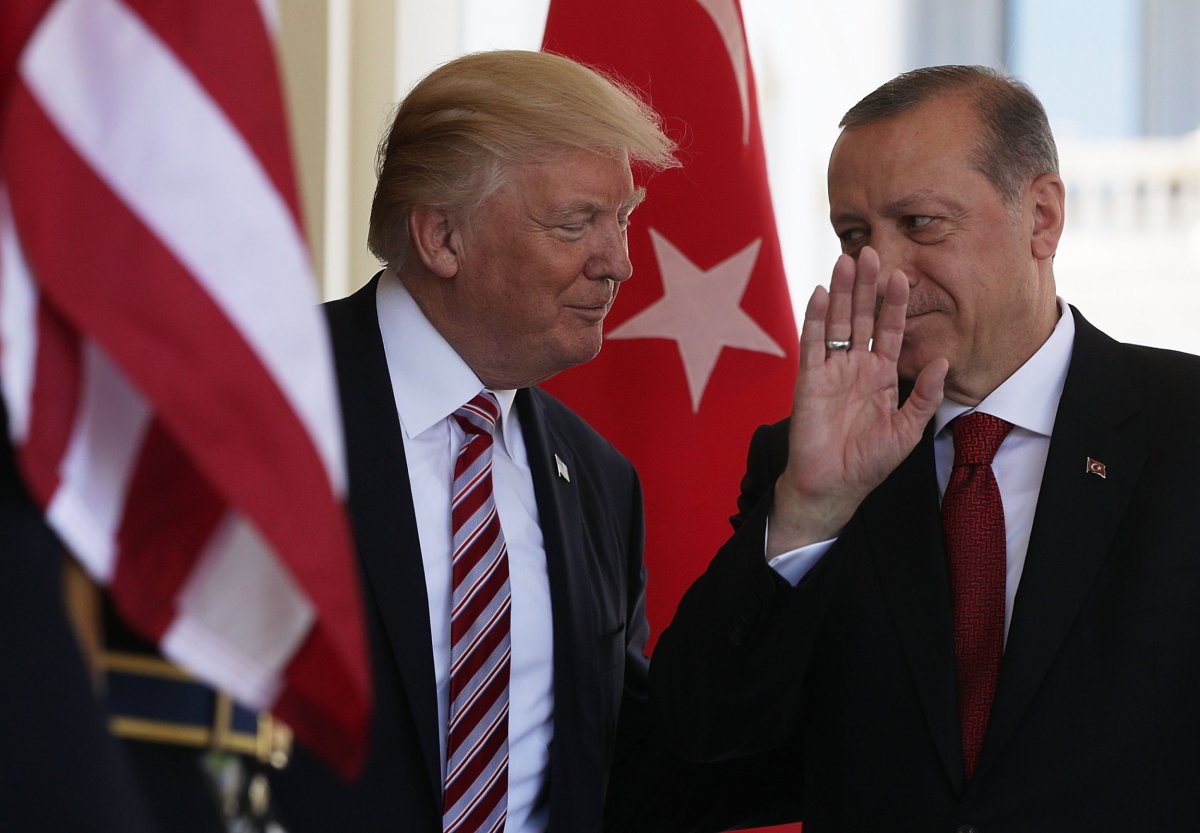The Turkish courts were busy over Christmas.
On Christmas Day, 17 journalists and executives from Turkey's oldest newspaper, Cumhuriyet, went on trial, accused of supporting terrorist organizations.
The leading investigative journalist Ahmet Șık, who is among those facing prosecution, attempted to deliver a defense statement and was expelled from the court.
Șık denounced the case against Cumhuriyet as "a conspiracy based on lies."
The day after, the representative of the press freedom group Reporters Without Borders Turkey, Erol Önderoğlu, and a number of academics went on trial. The charges against them include propaganda for a terrorist organization.
Since the attempted coup last year, civil society in Turkey is continuing to face one of the most relentless crackdowns in the country's history under a state of emergency that has been renewed five times. Many say it is worse even than the repression after the military coup of 1980.
At the latest count, according to the Turkish press freedom organization P24, 150 journalists are in prison—there are now more journalists imprisoned in Turkey than in any other country in the world.

The charges they face range from membership of a terrorist organisation to seeking to overthrow the constitution. Yet there is no material evidence against them for such serious charges—it is their journalism that is apparently criminal.
Despite the considerable pressures, Cumhuriyet remains brave. It is the only newspaper in Turkey to have taken part in the Paradise Papers investigation into offshore wealth (the world's second biggest data leak) revealing that the family of the Turkish prime minister has companies registered in Malta. The prime minister and his sons are now suing the newspaper.
In a separate case, the online editor of Cumhuriyet , Oğuz Güven, is facing prosecution for insulting President Erdoğan. His offense? His paper reported a lighthearted story that had already appeared in the Washington Post in 2016, which matched world leaders with the dogs they resembled.
Erdoğan appeared as a basset hound ("easily distracted by scent, barks at strangers, a most discerning nose.") The president of Turkey famously has no sense of humor and will sue anyone who makes any comment that offends him—even attempting to prosecute the comedian Jan Böhmermann in Germany for a satirical poem.
But this is about more than Erdoğan's fragile ego. It is part of the continuing, calculated attempt to silence freedom of expression in Turkey.
Cumhuriyet 's online editor had already been charged with terrorist propaganda and with publishing the statements of a terrorist organization for sending a tweet, and received a sentence of three years and one month in November. Güven's paper had tweeted that a truck had "mowed down" a state prosecutor in a traffic accident.
The additional charge of insulting the president appears singularly vindictive in the circumstances, but the message is clear: the government will pursue its critics at all costs.
President Erdoğan holds the cleric Fethullah Gülen living in Pennsylvania responsible for the failed coup in 2016. The US's refusal to extradite Gülen has strained relations between the two countries.
The Gülen movement was once an ally of Erdoğan. Under his government, it became influential both within and outside Turkey. Their falling out four years ago followed a corruption investigation that led to the resignation of three ministers and in which Erdoğan himself was implicated, along with some of his close supporters.
Although Erdoğan managed to close down the probe, for which once again he held the Gülenists responsible, it effectively reopened in a New York courtroom in an Iran sanctions trial at the end of last year.
Reza Zarrab, a pro-government businessman turned key witness, has claimed that President Erdoğan, when prime minister, approved the breaking of sanctions. The trial has put a further strain on already tense US-Turkey relations. Unsurprisingly perhaps, Erdoğan has dismissed it as a plot.
President Erdoğan's pursuit of the press is part of an ongoing purge of civil society, ostensibly to rid Turkey of the Gülenists. In fact it is an attempt to crush all opposition to the president within the country.
Politicians and academics, along with tens of thousands in the public sector, are among those in jail. Foreign correspondents are no longer safe either. A Wall Street Journal reporter, Ayla Albayrak, has been convicted of engaging in terrorist propaganda, and even US consular staff have been arrested.
It would be a terrifying spectacle to witness in any country, but Turkey is a NATO ally and a member of the Council of Europe. Yet there has been no effective international action to address the ongoing infringement of human rights and the relentless erosion of the rule of law there.
In December, leading international human rights groups, including the Committee to Protect Journalists and PEN America, called on the European Union to be less deferential towards Turkey.
While some observers have noted that there may be signs that Erdoğan is losing ground, not least in failing to win the support of Turkey's three largest cities in the referendum this year, there is as yet no indication that his repression of his own people will diminish.
Turkey is too important, strategically and culturally, for the international community to stand by and watch this vicious assault on civil society.
Jo Glanville is a visiting fellow at the Arbeitsstelle Holocaustliteratur, Giessen University. She is former director of the freedom of expression charity English PEN and was an award-winning editor of the magazine Index on Censorship.
Uncommon Knowledge
Newsweek is committed to challenging conventional wisdom and finding connections in the search for common ground.
Newsweek is committed to challenging conventional wisdom and finding connections in the search for common ground.
About the writer
To read how Newsweek uses AI as a newsroom tool, Click here.








